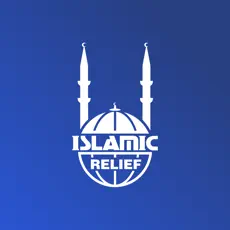In a crisis, a rapid response can be the difference between life and death. From its beginning decades ago, Islamic Relief USA (IRUSA) has worked to deliver immediate relief to communities facing natural disasters, armed conflicts, and other emergencies. In particular, IRUSA’s recent work in Bangladesh, Palestine, Kenya, Afghanistan, and East Africa provides a snapshot of its emergency response capabilities.
Support for Flood Victims in Bangladesh
The 2024 monsoon season has brought devastating flash floods to Bangladesh, affecting 11 districts, displacing 1.2 million families, and putting 5.7 million people in urgent need of humanitarian aid. Homes, farms, businesses, transportation infrastructure, and entire villages were inundated. As is the case during many disasters, the flooding disproportionately affected communities that were already struggling with poverty. In addition to the 18 deaths caused directly by the floods, many more people were left stranded by the rising water, and the destruction of crops threatened food security for many.
IRUSA quickly mobilized to provide essential aid to the communities most affected. Thanks to donations, IRUSA was able to provide a lifeline to people in need—many of whom had just seen their homes and livelihoods washed away.
This rapid response was also possible thanks to IRUSA’s longstanding presence in Bangladesh and its work with local organizations, which allowed it deploy relief quickly. Now, as Bangladeshi communities focus on long-term recovery, IRUSA continues to provide aid.
Emergency Aid Amid the War in Gaza
Gaza has been ravaged by more than a year of war and a blockade so tight that famine is imminent in the northern region. Food, medicine, clean water, and essential goods are in extremely short supply, and humanitarian organizations are being prevented from delivering aid. The violence has resulted in a staggering number of casualties, with over 41,000 dead and thousands more injured or missing. Nearly the entire population has been forced from their homes. As infrastructure collapses and the health system hangs by a thread, the situation is past the point of crisis—it is a humanitarian catastrophe.
Despite the difficulties for NGOs trying to deliver aid, IRUSA has remained committed to supporting Palestinians throughout this crisis. It has partnered with local organizations to provide food parcels sourced from local farmers to displaced families. Together over the past year, IRUSA and these organizations have cooked and distributed more than 40 million hot meals for displaced families, provided clean water to 110,000 people a day, and led psychosocial support sessions for more than 94,000 children. Even in the face of extreme logistical barriers, IRUSA’s presence has provided a lifeline to Gazans trapped in a devastating crisis. The organization is also calling for an immediate and lasting ceasefire across the region.
Rebuilding Lives in Kenya After Heavy Rainfall
In Kenya, extreme weather last spring had deadly consequences for rural communities. The bursting of the Old Kijabe dam in the Great Rift Valley led to the loss of at least 50 lives and the destruction of over 27,000 acres of farmland. Livestock was also decimated, which has been economically disastrous for farmers who rely on raising animals for income.
In response, IRUSA has been working to stabilize affected areas. The organization has provided cash assistance to more than 6,000 families, which has allowed them to purchase food and basic necessities. IRUSA has also focused on long-term recovery in this part of Kenya, including the rehabilitation of well boreholes to secure clean drinking water for thousands in Tana River, Garissa, Wajir, and Mandera counties. These initiatives have addressed people’s immediate needs while supporting the restoration of livelihoods and communities.
Earthquake Relief in Afghanistan’s Herat Region
The Herat region of Afghanistan has faced a series of catastrophic earthquakes since October 2023, leaving thousands of homes in ruins. Over 2,000 people lost their lives, and many more were injured or left homeless. The crisis added to the hardships already faced by a population that has endured decades of conflict and instability.
IRUSA responded by providing immediate assistance to those affected, including cash grants for food, hygiene kits, and temporary shelter solutions. In addition to emergency relief, IRUSA has implemented long-term recovery initiatives, including plans to construct permanent shelters, improve water sources, and create opportunities for local people to earn an income.
Combatting Famine in East Africa
In East Africa, millions face the threat of famine due to a combination of drought, conflict, and rising food prices. Countries like Somalia, Ethiopia, and Kenya have been particularly hard hit, with nearly 23 million people at risk of severe food insecurity. Additionally, over 9.5 million livestock have died, which has deprived many communities of their primary source of income and nutrition.
IRUSA has been on the ground applying lessons learned from previous drought response efforts to bring relief. The organization is making a difference through financial assistance programs, the provision of water and hygiene kits, and the construction of sanitary facilities. These efforts are part of a broader strategy to build resilience and ensure that vulnerable populations are not forgotten.
IRUSA: An Emergency Relief Lifeline
In each of these crises, IRUSA has responded quickly and effectively to deliver critical support for communities in desperate need. Its commitment to delivering both immediate aid and long-term recovery solutions helps to both relieve immediate suffering and support communities as they rebuild.
For those who want to make a difference, supporting IRUSA’s emergency relief work is a way to contribute to a more just and compassionate world. Donate today to provide relief to victims of these and other humanitarian crises around the world.
